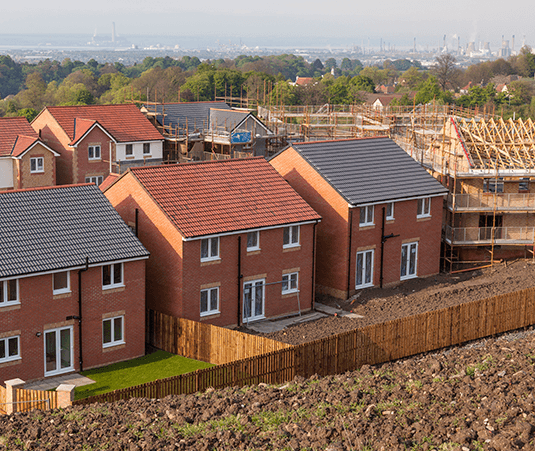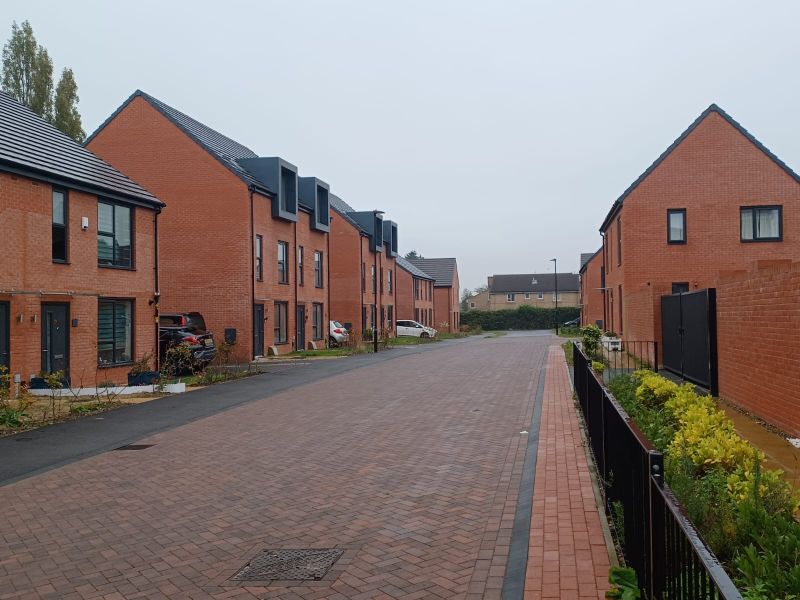New legislation will come into force which means major development (unless otherwise exempt) will have to deliver net gains for biodiversity leading to positive outcomes for nature, better places for local communities and more consistent and transparent requirements for developers.
The legislation will apply to smaller developments from April 2024.

Amanda Williams, head of environmental sustainability at CIOB, said: “This important legislation has been a long time coming so after a number of delays I’m glad it has finally come into force. I accept those delays and lack of a clear timeline has left many in the built environment sector feeling underprepared to successfully deliver biodiversity net gain, but I fear more delays could have resulted in the legislation being scrapped altogether, which would be a big step backwards for reducing construction’s impact on the environment.
“It will take time for our industry to adapt to the complex new legislation and understanding will need to be shown by regulators, particularly while there continues to be a shortage of experts such as ecologists to factor biodiversity net gain into project plans, deliver it and monitor success. CIOB has long called for a green skills strategy to address this and other skills shortages in areas such as retrofitting and without recruiting, training and retaining these specialists, biodiversity net gain, along with net zero will not be achieved.
“In my view the role communities can play in delivering biodiversity net gain is being overlooked and I’d urge project teams to involve them and draw on their knowledge and experience of local habitats and wildlife which can prove invaluable. According to the 2023 State of Nature Report, the UK is one of the most nature-depleted countries on earth and there’s a responsibility on us all to work together to turn that around.
“Looking into the future, the current biodiversity net gain legislation does not address construction’s full impact on nature as it excludes the production and processing of construction materials, such as timber, sand, and minerals including gravel, iron ore and rocks, and how they affect biodiversity. The embodied biodiversity impacts of a project, i.e. the impacts on biodiversity resulting from the processes that take place throughout a material’s lifecycle, from extraction to end of life disposal, are not covered by the current rules and this is something that in time will need to be addressed.”
The HBF says that while the intention of the mandate aligns with home builders' ongoing efforts to protect and enhance natural environments, the impact on an already complex planning system mustn't be overlooked. Delays securing planning consent are already considered a significant barrier to the delivery of much-needed homes - with 93% of SME home builders identifying planning delays as a major barrier to growth.
Local Authorities need to ensure there is sufficient capacity in their teams to process BNG effectively or we will see further delays in the planning process.
Sam Stafford, Planning Director at the HBF said: “Home builders have embraced the principle of Biodiversity Net Gain and are committed to creating places that protect and enhance the natural environment.
"BNG is already being achieved on developments across the country, delivering significant benefits to residents and the environment. However, operational challenges must not be underestimated. Ensuring there are viable options available - particular for small sites - is vital and expectations must be managed as this new way of working beds in.
“Whilst the developers of larger sites have been increasingly including BNG on their developments, for smaller sites, where it is not possible to deliver on-site solutions, there is a reliance on off-site credits, the availability of which is a challenge in some areas, with the market still in its infancy.
“We also need to ensure there is sufficient capacity in local authority planning departments to manage BNG. Delays in the planning process are already a major constraint on development. BNG adds further complexity to the process and without adequate resourcing, further delays are inevitable.
“While it is disappointing that some gaps in Government guidance were not addressed to support industry and LPA readiness ahead of the requirements coming into play, we stand ready to help navigate inevitable teething problems and ultimately make the transition as smooth as possible."




















